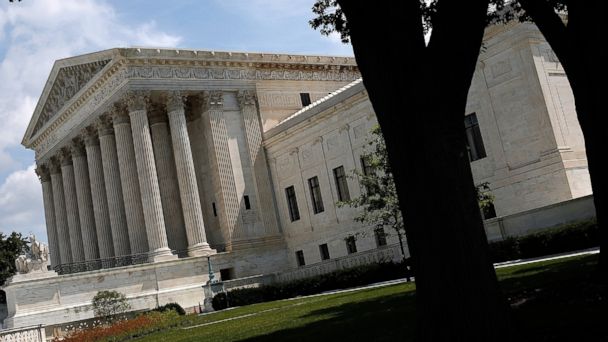How Supreme Court's Cellphone Decision Affects You
ABC News' Ariane de Vogue and Jake Lefferman report:
Before today's Supreme Court decision, some lower courts had said that police officers could, at the time of arrest, search your cellphone without a warrant. The thinking was that a cellphone was no different than, say, a cigarette pack in your pocket, or pictures in your wallet.
What was the court's ruling?
A unanimous court said that the police generally may not, without a warrant, search digital information on a cellphone seized from an individual who has been arrested, unless there is an emergency circumstance.
The holding is broader than some of us who attended oral argument thought it might be.
What about a middle ground?
At oral arguments several of the justices batted around some kind of middle-ground position. They thought maybe they could draw the line at serious v. nonserious crimes, or pertaining only to information on the phone relevant to the arresting crime. But today it is clear that at the end of the day, they objected to middle-ground positions. It's a sweeping ruling that will thrill privacy rights advocates.
What are interested parties saying about the decision?
Steven R. Shapiro, the national legal director of the ACLU, had this reaction: "By recognizing that the digital revolution has transformed our expectations of privacy, today's decision is itself revolutionary and will help to protect the privacy rights of all Americans. We have entered a new world but, as the court today recognized, our old values still apply and limit the government's ability to rummage through the intimate details of our private lives."

(Photo Credit: Win McNamee/Getty Images)
Chief Justice John Roberts, writing for a unanimous court, talks about how pervasive cellphones are today: They have become "such a pervasive and insistent part of daily life that the proverbial visitor from Mars might conclude they were an important feature of human anatomy."
He rejected arguments from the government that law enforcement needed to search without a warrant to protect officers or stop the destruction of evidence. "Digital data stored on a cellphone cannot itself be used as a weapon to harm an arresting officer or to effectuate the arrestee's escape. Law enforcement officers remain free to examine the physical aspects of a phone to ensure that it will not be used as a weapon - say, to determine whether there is a razor blade hidden between the phone and its case. Once an officer has secured a phone and eliminated any potential physical threats, however, data on the phone can endanger no one."
Roberts says that law enforcement concerns can be better addressed by the exigent circumstances exception to the Fourth Amendment.
He says that if the officers are concerned that data might be lost, they can disconnect the phone from the network either by removing its battery or placing it in a bag that isolates the phone from radio waves.
What about the government's claim that a search of data stored on a cellphone can be "materially indistinguishable from searches of these sorts of physical items?
Roberts laughs that argument off: "That is like saying a ride on horseback is materially indistinguishable from a flight to the moon."
More on that: "Modern cellphones, as a category, implicate privacy concerns far beyond those implicated by the search of a cigarette pack, a wallet or a purse."
What's Roberts' bottom line for law enforcement?
"We cannot deny that our decision today will have an impact on the ability of law enforcement to combat crime. Cellphones have become important tools in facilitating coordination and communication among members of criminal enterprises, and can provide valuable incriminating information about dangerous criminals. Privacy comes at a cost."
Finally, he ends his opinion with a bang: "Modern cellphones are not just another technological convenience . With all they contain and all they may reveal, they hold for many Americans the 'privacies of life.' The fact that technology now allows an individual to carry such information in his hand does not make the information any less worthy of the protection for which the Founders fought. Our answer to the question of what police must do before searching a cellphone seized incident to an arrest is accordingly simply - get a warrant."